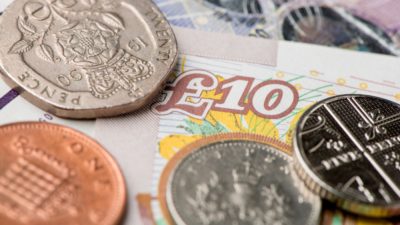The FTSE 100 has gained less than 3% as we reach the halfway point of 2015. But housebuilders Taylor Wimpey (LSE: TW) and Barratt Developments (LSE: BDEV), media group ITV (LSE: ITV) and packaging firm Mondi (LSE: MNDI) have all beaten the index by 10 times or more.
Is it time to ditch these soaraway stocks or can they continue to fly higher?
Taylor Wimpey and Barratt Developments
Taylor Wimpey has risen 38% year to date, while Barratt Developments has put on 33%. These gains are just the latest leg-up in a long recovery since the spectacular crash of their shares in 2007/8 as the financial crisis unfolded.
The shares of both housebuilders are still below their pre-meltdown levels, and earnings forecasts for calendar years 2015 and 2016 suggest there could be further gains to come. Valuations don’t look stretched.
| P/E 2015 | PEG 2015 | P/E 2016 | PEG 2016 | |
| Taylor Wimpey | 13.0 | 0.4 | 11.4 | 0.8 |
| Barratt | 13.3 | 0.6 | 11.7 | 0.8 |
There’s not much to choose between the two companies — and they both look decent value. Their P/Es (price-to-earnings ratios) are below the long-term FTSE 100 forward average of 14, while their PEGs (P/E-to-earnings growth ratios) are on the cheap side of the “fair value” marker of 1.
Both companies are returning stacks of surplus cash to shareholders at the moment through regular dividends and special returns. Barratt intends to return a cash total over the next three years that amounts to a 16% yield on the current share price. Taylor Wimpey is setting its cash returns year-by-year, but analyst forecasts suggest a similar three-year yield to that of Barratt.
With a supportive economic backdrop, modest valuations and chunky cash returns, the housebuilders’ shares appear to have scope for further gains. Investors should bear in mind, though, that this is a cyclical industry and that share prices can fall fast and far when they do fall.
ITV and Mondi
ITV and Mondi have gained 28% and 36%, respectively, year to date. As with Taylor Wimpey and Barratt, this represents the continuation of a strong performance since the financial crisis and recession. Like the housebuilders, ITV and Mondi are in businesses that are sensitive to the economic cycle.
The table below shows how valuations are currently looking for these two companies.
| P/E 2015 | PEG 2015 | P/E 2016 | PEG 2016 | |
| ITV | 17.4 | 1.3 | 16.0 | 1.7 |
| Mondi | 15.7 | 1.9 | 14.5 | 1.7 |
As you can see, ITV and Mondi look less attractive than the housebuilders on these measures. Their P/Es are above the long-term FTSE 100 forward average of 14, while their PEGs are on the expensive side of the “fair value” marker of 1. Also, dividend forecasts for the next three years suggest ITV and Mondi will return only about half the cash to shareholders that Taylor Wimpey and Barratt are expected to return.
Nevertheless, ITV and Mondi are well-run businesses and do have some other attractive qualities. For example, Mondi is widely diversified geographically, including having over 40% of sales coming from customers in emerging markets. ITV’s international reach is growing, too, and the company is also less reliant on advertising revenue than it once was, somewhat reducing its sensitivity to the economic cycle.
For these reasons, if I were an owner of shares in ITV or Mondi, I’d be happy to continue holding. If I were considering buying into the companies, though, I think I’d be looking for a dip in the shares to give a slightly more attractive valuation.






